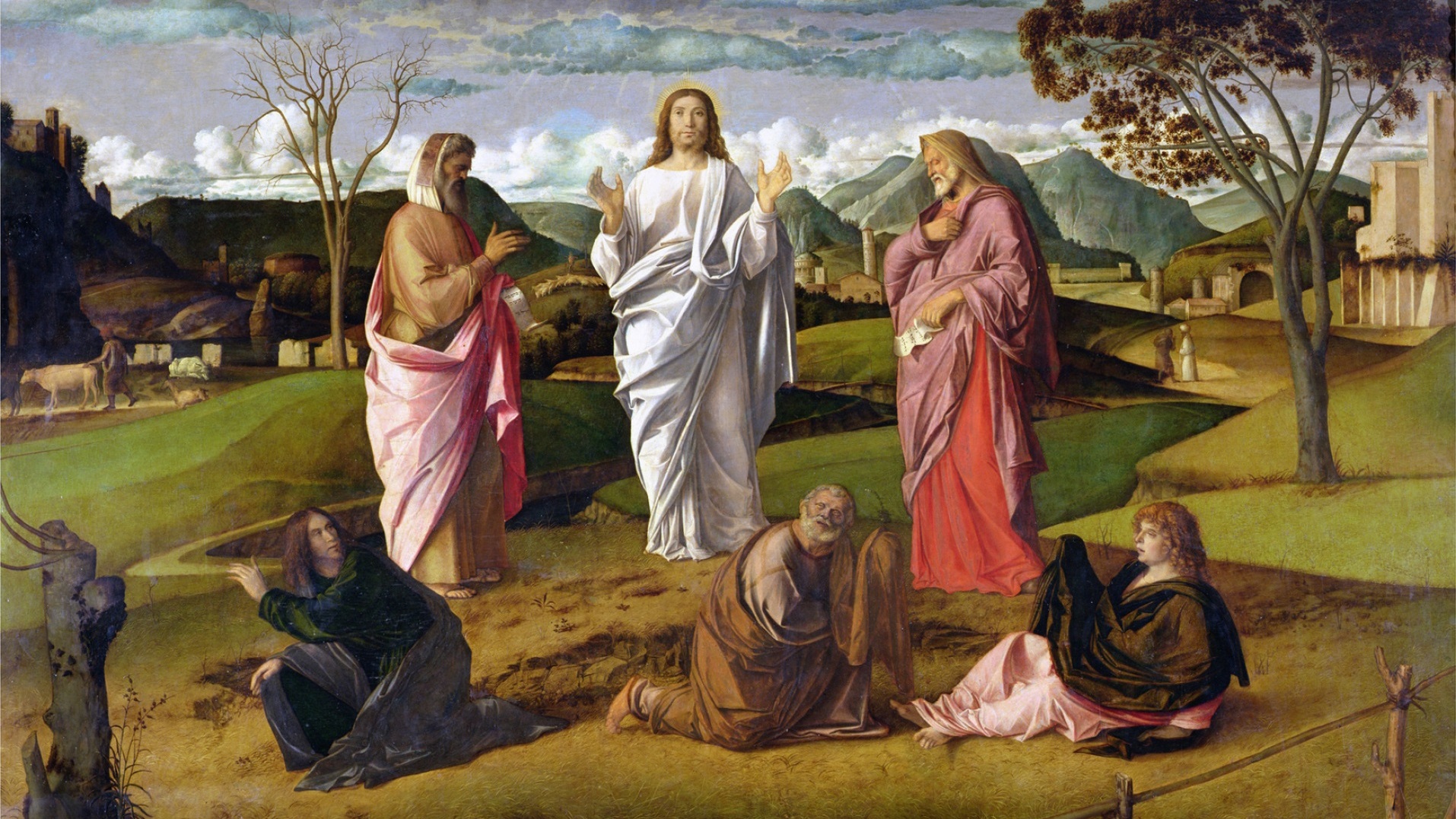A Tale of Two Mountains
2nd Sunday of Lent (Year B)
“If God is for us, who can be against us?”
Rom 8:31
The readings for the second Sunday of Lent present us with a tale of two mountains.
This first is Mount Moriah. Here, Abraham, in obedience to God, is preparing to sacrifice his beloved son Isaac. At the final moment, an angel stops Abraham’s hand. But because Abraham was faithful to the point of not even withholding his own son, God says, “I will bless you abundantly and make your descendants as countless as the stars of the sky and the sands of the seashore… and in your descendants all the nations of the earth shall find blessing— all this because you obeyed my command” (Gen 22:17-18).
The other is Mount Tabor, where Jesus is transfigured in glory before Peter, James and John. For one brief moment, the veil is pulled back revealing Christ’s divinity. He is seen conversing with Moses and Elijah, and God the Father’s voice is heard proclaiming, “This is my beloved Son. Listen to Him” (Mk 9:7).
What is the connection? What does one mountain-top experience have to do with the other?
The element that ties together these two events is trust in God. Abraham, our father in faith, is said to be righteous because he believed in God (cf. Rom 4:3, Gn 15:6). But his faith was not always as strong as it should be. God had made a promise to Abraham that he would be the father of nations. Yet at the age of 86 he and his wife Sarah had no children. Taking matters into their own hands, Abraham conceived a son with his wife’s maidservant, Hagar. But this was not the child of the promise. This was a failure of faith on Abraham’s part.
God would indeed provide a son to Abraham and Sarah in His own time, when Abraham was 100 years old. This was Isaac, whom God would later ask Abraham to sacrifice on Mount Moriah.
This doesn’t seem to make any sense. How can God fulfill His promise to make Abraham the father of nations if He expects Abraham to sacrifice his son? But Abraham’s faith does not fail in this moment. He does not doubt, but instead trusts in the Lord that all would be as it should if he obeys God’s command. And because he trusted, Abraham and all who have come after him in faith (including you and I) have indeed been blessed.
So what about the transfiguration of Christ on Mount Tabor? Just as Abraham and Isaac prefigured, God was preparing to hand over His own Son as a sacrifice for us (cf. Rom 8:32). But this was something the disciples did not yet understand (see the end of our gospel reading at Mk 9:10). Watching their beloved Master whom they had seen work miracles be arrested, tortured, and executed in the most public and shameful way would be an incredible trial for them. And so before this happens, Christ takes His “inner circle” of leaders to the top of a mountain to give them a preview of what was to come: not suffering and death, but resurrection and life.
Thus strengthened, they would be able to trust in God’s faithfulness in the midst of the difficult times that were to come, knowing that despite appearances to the contrary, the broken and bleeding man hanging from the cross is indeed God and Savior, for they had seen His glory with their own eyes. In the midst of the worst of times, they could have faith that God was still in control.
At different times in our lives, we all have our mountain-top experiences with God. When God asks us to do something difficult, what are we to do? Trust Him. When God places us in the midst of trying circumstances, what are we to do? Trust Him. When God promises us something that seems impossible, what are we to do? Trust Him. When God gives us crosses that seem too heavy for us to bear, what are we to do? Trust Him.
God works all things for the good of those who love Him, even the difficult ones (cf. Rom 8:28). As St. Paul says in this Sunday’s second reading, “If God is for us, who can be against us? He who did not spare his own Son but handed him over for us all, how will he not also give us everything else along with him?” (Rom 8:31-32).
God has given us His Son, Jesus Christ; and if we have Christ, we have enough, because if we have Christ, we have everything. So have faith, and trust in the Lord.

